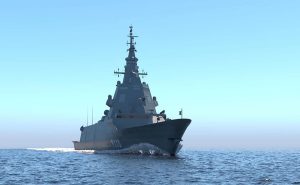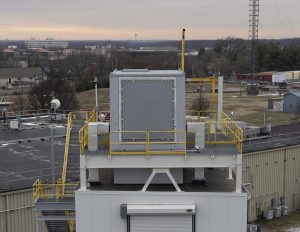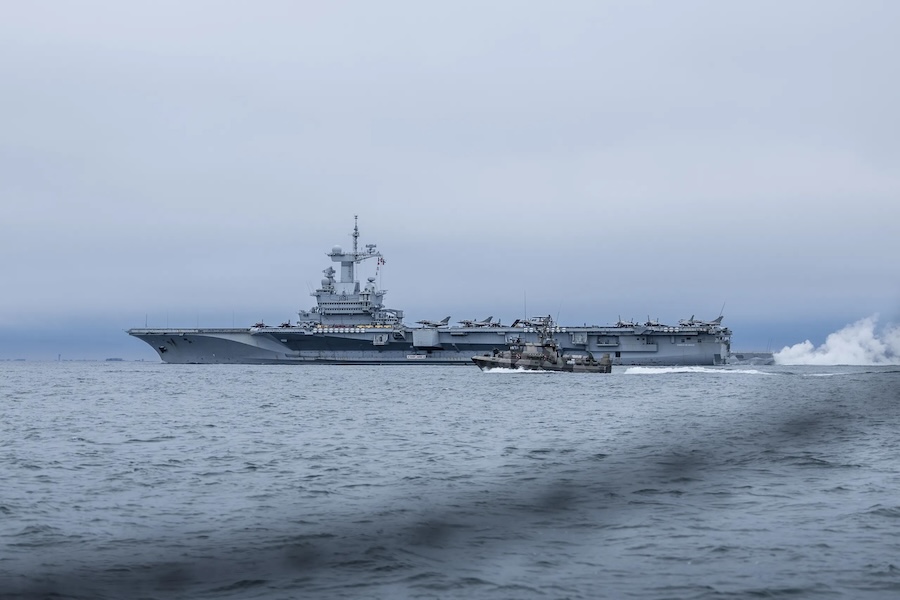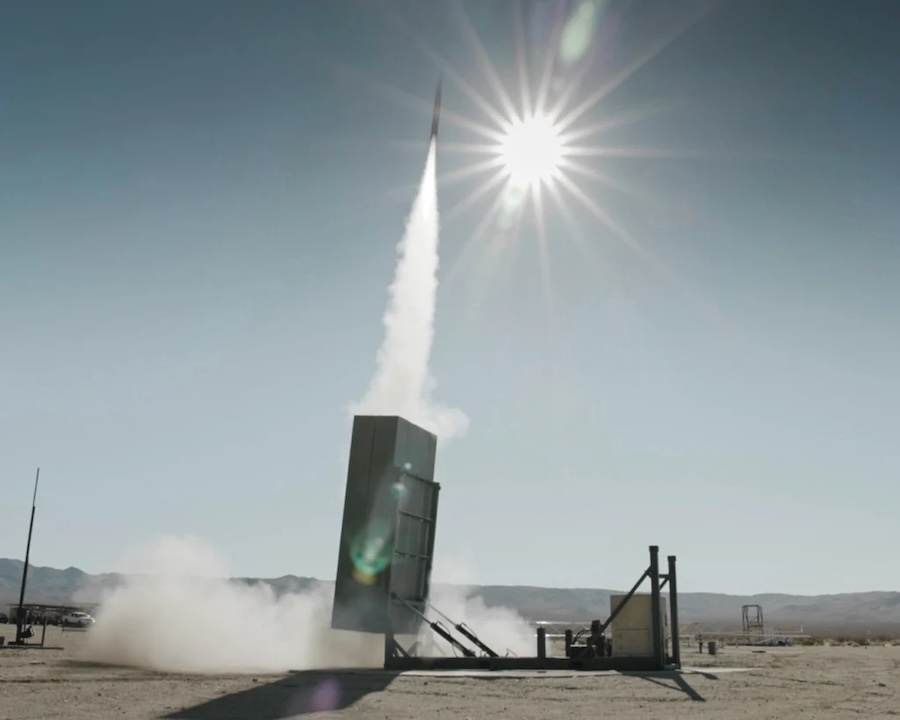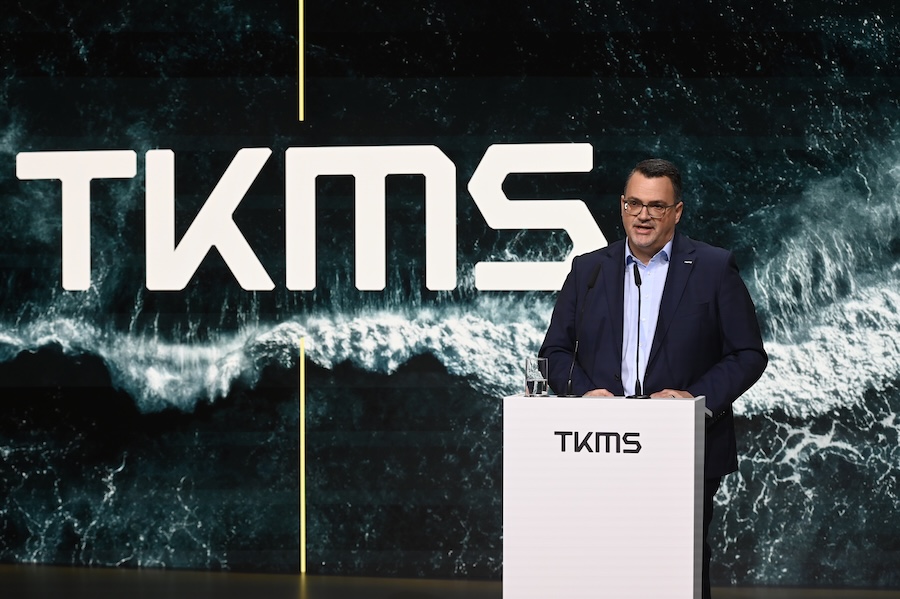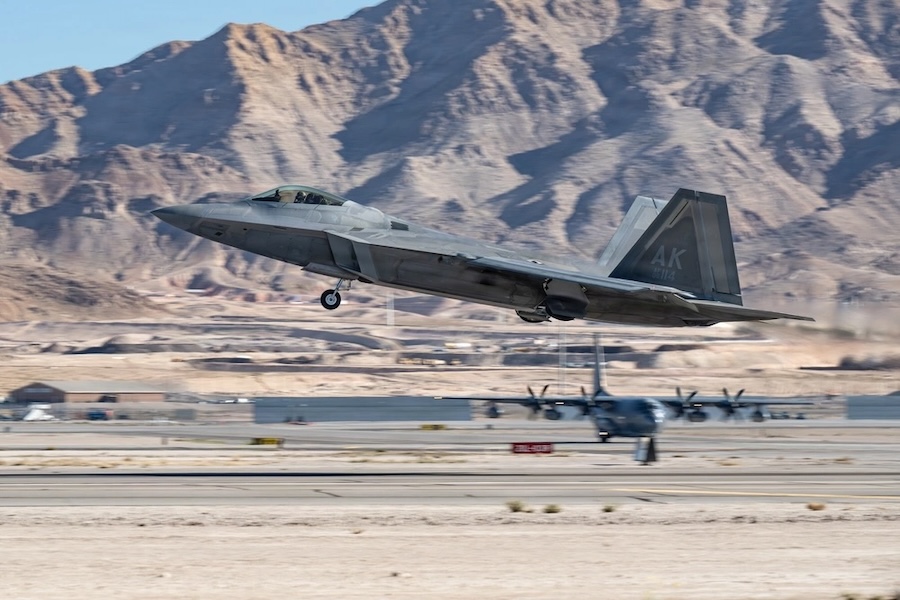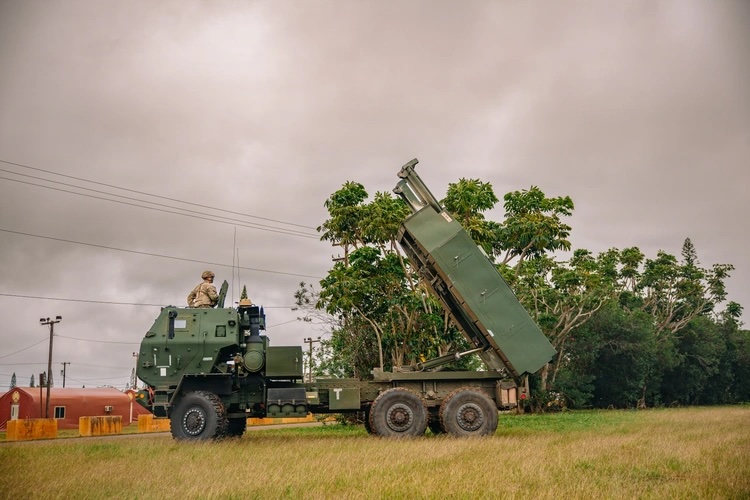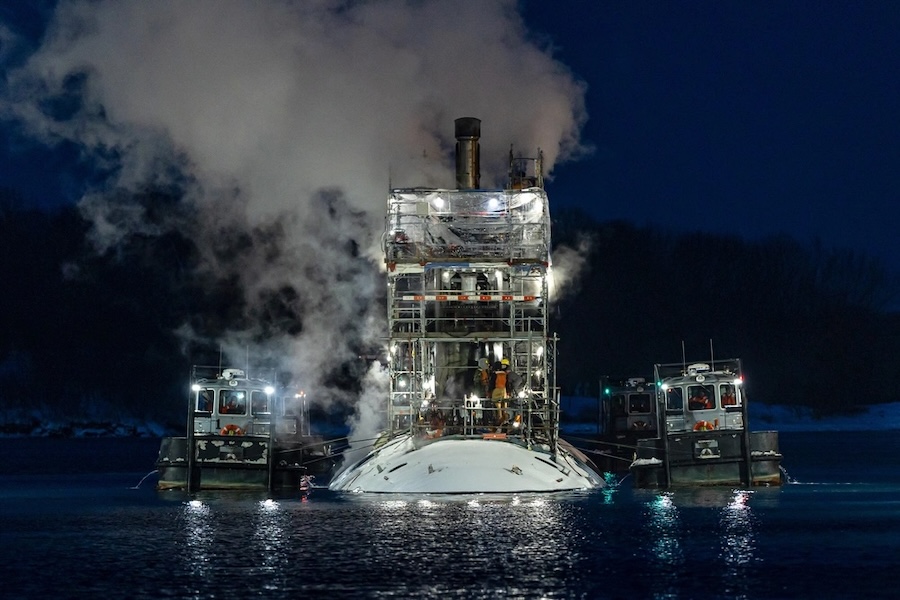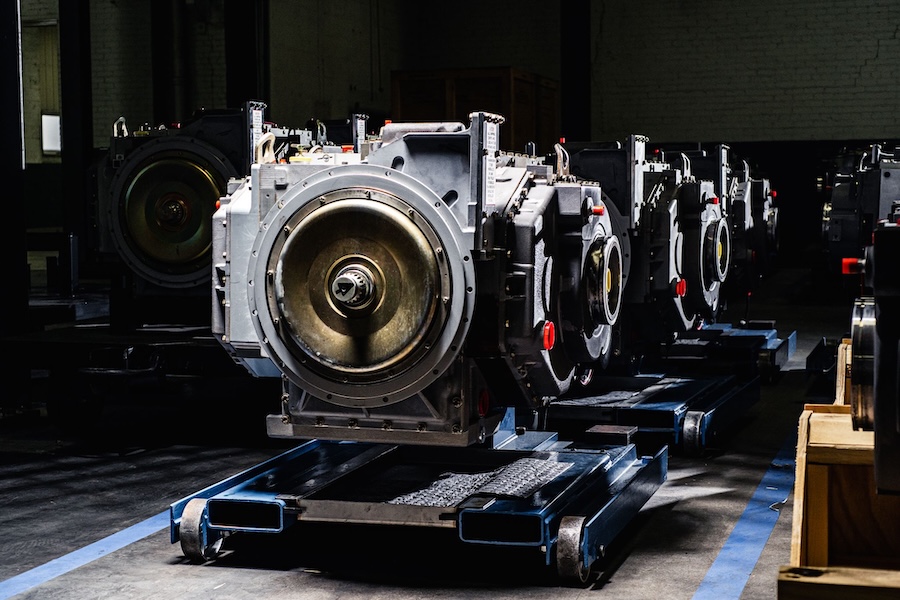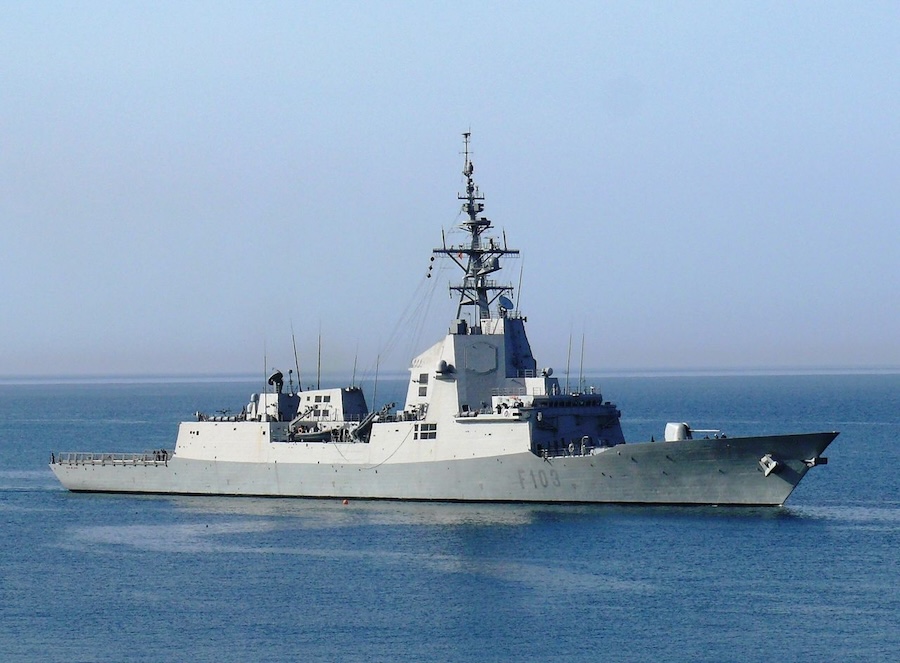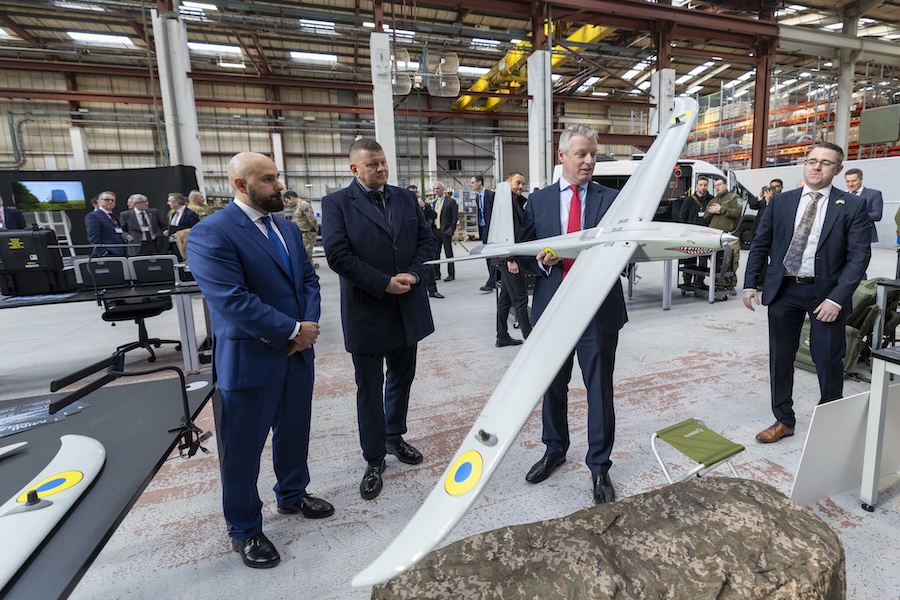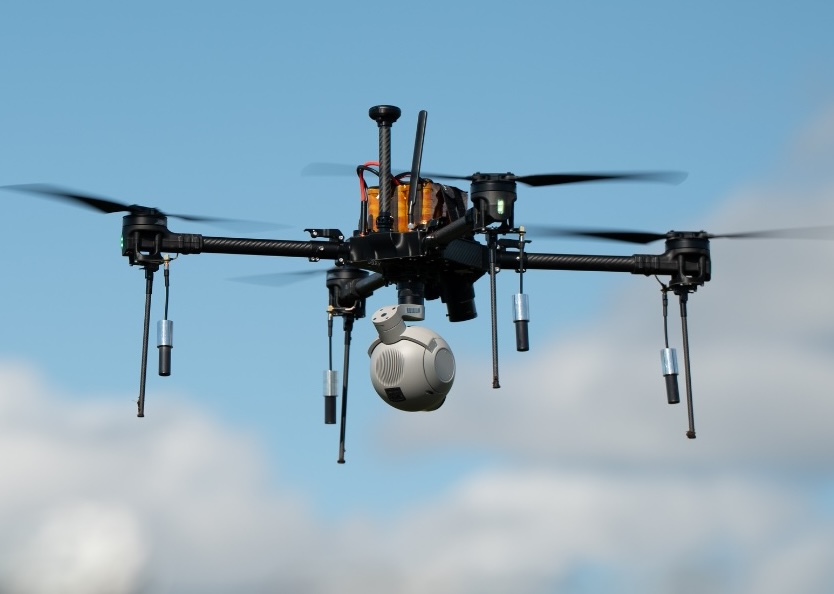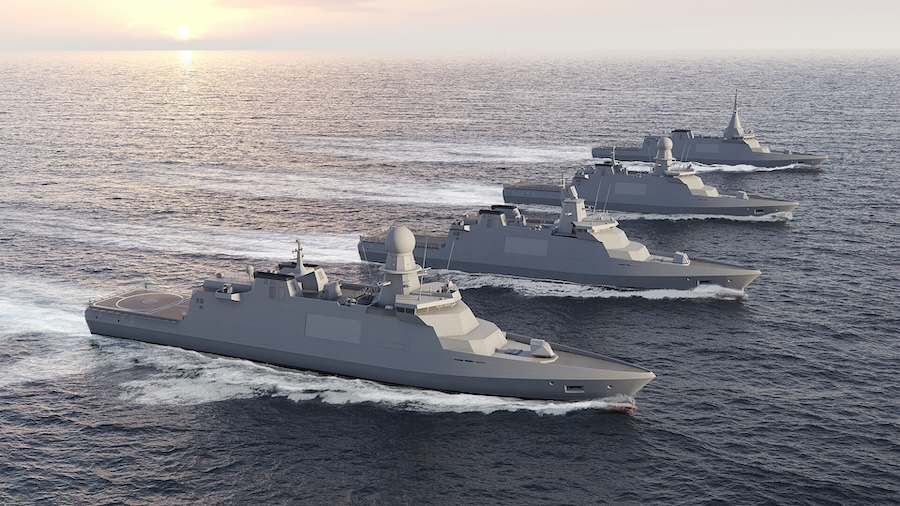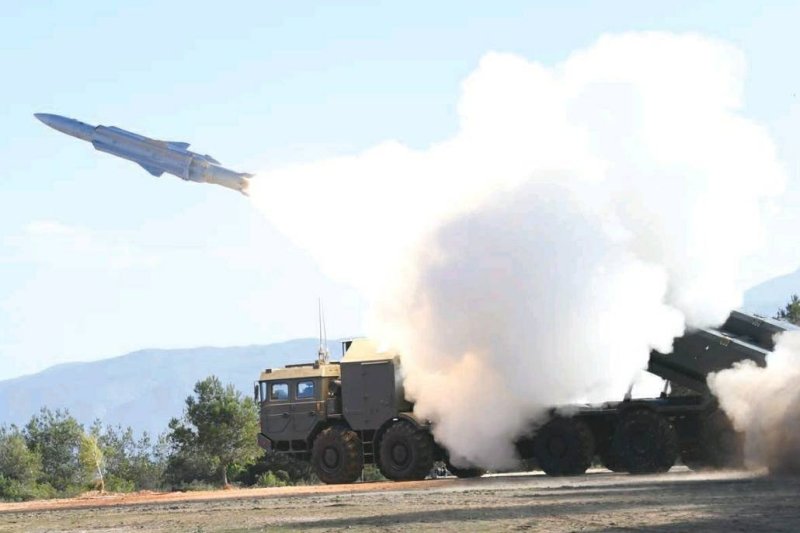Construction of the F113 frigate, which will be named ‘Menéndez de Avilés,’ began in a robotic welding cell, developed by the shipyard’s Innovation and Robotics Centre as part of its efforts towards digital transformation and process automation. This innovation will automate the construction of certain components using techniques such as artificial vision and flexible programming, saving manufacturing time and improving welding quality.
The construction of the F113 commenced three months ahead of the planned schedule, underlining the programme’s positive momentum. Alongside this, Navantia is developing a new Digital Block Factory, which is expected to be fully operational in 2026 and will debut with blocks for the F113.
The ceremony also included the keel laying of the F112 frigate, named ‘Roger de Lauria,’ the second ship in the programme. The block placed was the 212, forming the base for the ship’s construction on the slipway, with a launch scheduled for 2026.
This achievement for the F112 was celebrated seven months ahead of the original schedule, marking the transition of the ship from workshop to slipway construction. The keel was placed adjacent to the F111 ‘Ramon Bonifaz,’ the first of the series, which has already achieved over 85% block assembly and is preparing for launch in the coming months.
The ceremony confirmed that the F110 programme remains three to seven months ahead of the Ministry of Defence’s agreed schedule. Navantia’s progress strengthens confidence in the project’s execution and its contribution to Spain’s naval capabilities.
The F110 programme, launched with an execution order in 2019, involves the construction of five new-generation frigates worth 4.325 million euros. These versatile escort ships will offer anti-aircraft, anti-surface, and anti-submarine capabilities, as well as maritime security and civil support roles.
The F110 series represents a significant step forward for the Spanish Navy’s operational capabilities and for the industrial and technological potential of Navantia and its partners. It contributes to Spain’s strategic autonomy, enhances its industrial base, and creates new opportunities for international exports.
A key innovation in the F110 programme is the integration of the Digital Twin, an advanced virtual replica of each ship. Developed in collaboration with the Navy and the Directorate General of Armament and Material (DGAM), the Digital Twin uses real-time data from onboard sensors, combined with Cloud Computing, Machine Learning, and Internet of Things (IoT) technologies, to support the ships’ maintenance and operation even from thousands of miles away.



